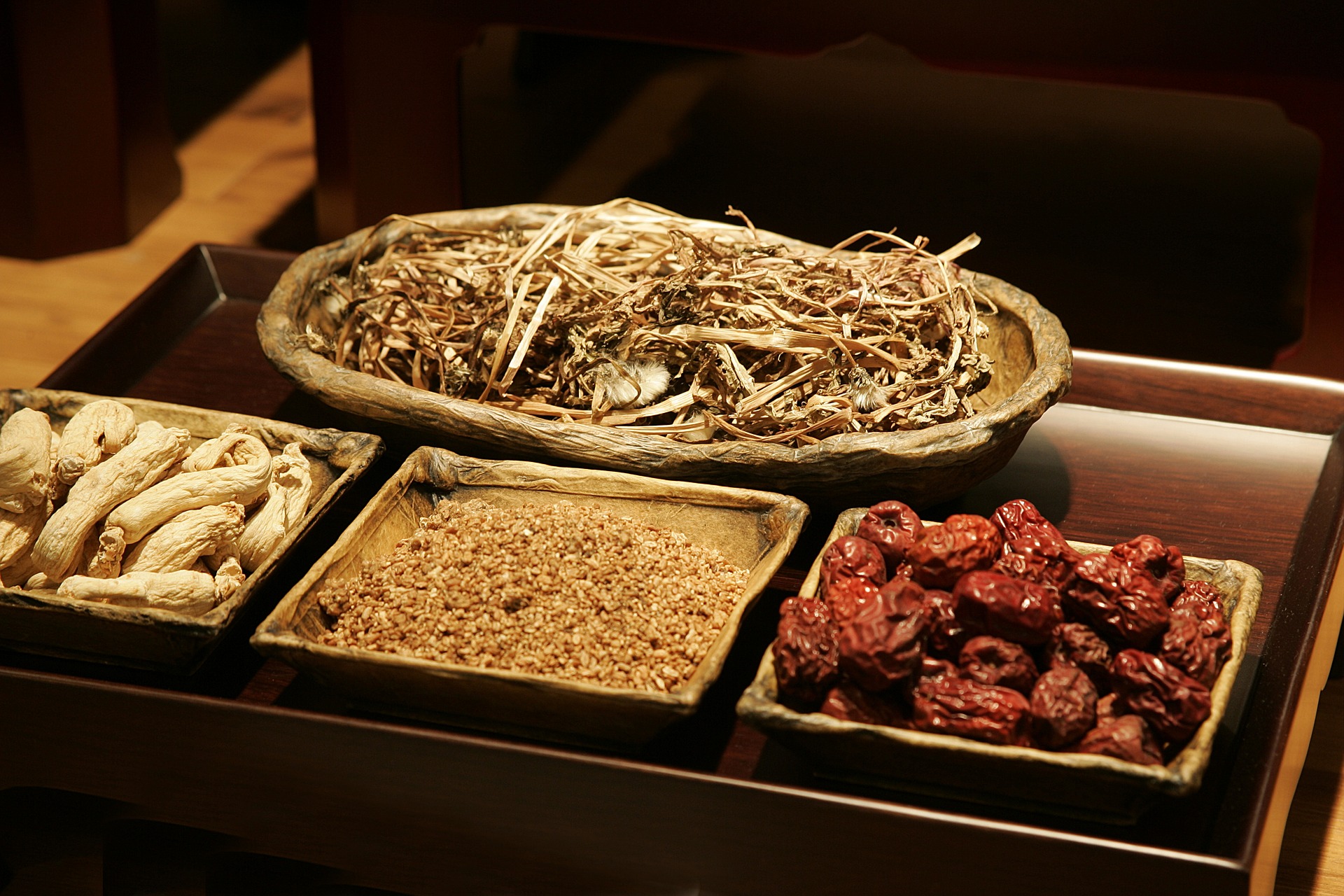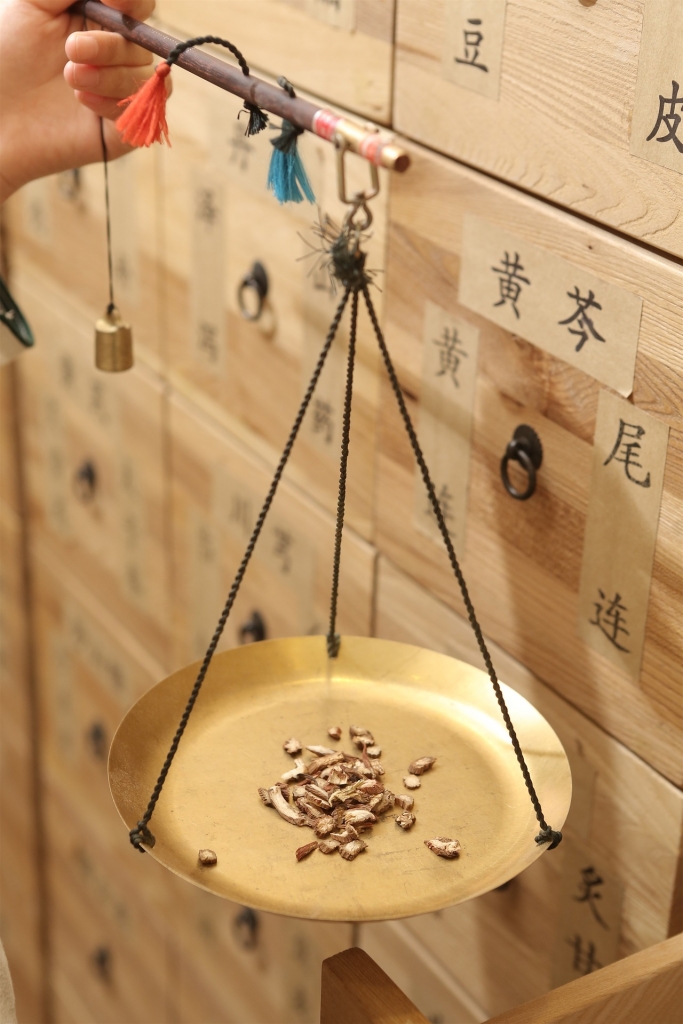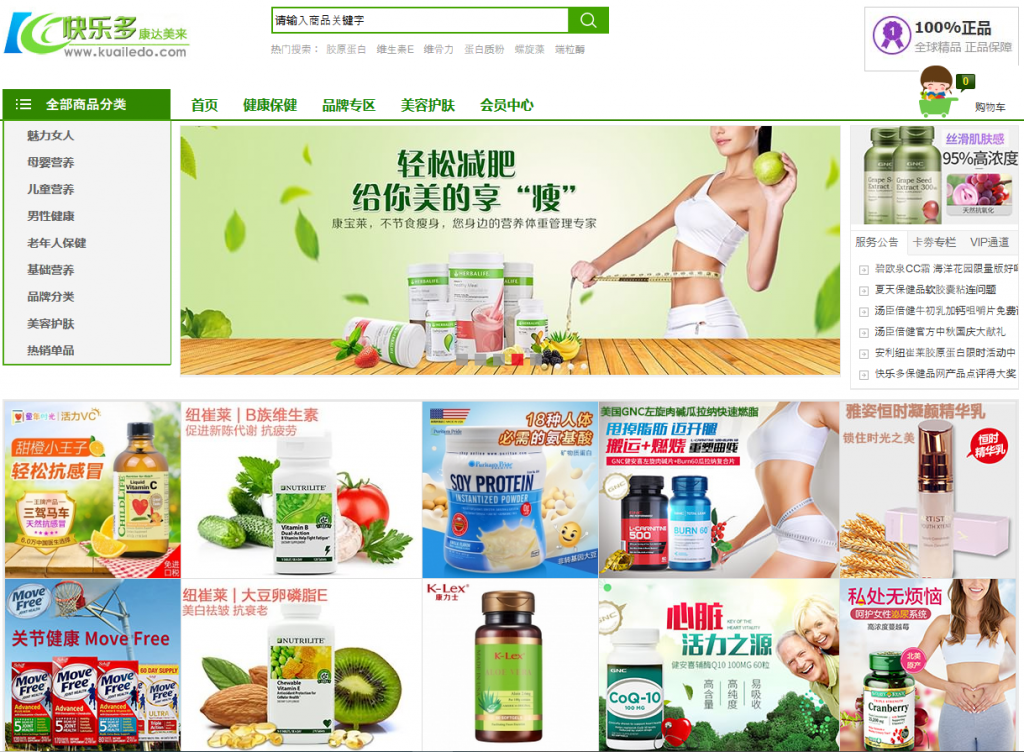
The boom of food supplements in China
According to the Chinese proverb «补 不如 食补,” drugs are not worth food supplements “. In other words, it is better to eat certain nutritious foods and use the drugs as a last resort. Traditional Chinese culture believes that eating a balanced diet is the basis of good health and prevents the sick person. The food supplement market takes advantage of this philosophy and the current increase in purchasing power. According to a 2016 report by consulting firm McKinsey & Company, 76% of China’s urban population will be in the middle class by 2022. As a result, this population is more inclined to invest in substitutes in order to achieve better quality of life. In addition, the government wants the population to be in better health and to promote their consumption.
Fashionable products
A family of particular products …
Food supplements cover a whole range of products that need to be differentiated. According to the European definition, transposed in France in March 2006, these are “foodstuffs whose purpose is to supplement the normal diet and which constitute a concentrated source of nutrients or other substances having a nutritional or physiological effect alone. or combined, marketed in the form of doses’. In China, they are referred to as “Health Food 保健 食品”. The Chinese authorities specify that these are food products with health benefits proven by scientific studies and which do not cause a chronic or serious danger to the body.
So are concerned with conventional foods (such as carrot extract), nutrients (vitamins and minerals), plants (fennel) and products for nutritional or physiological purposes (proteins, fatty acids, antioxidants, etc.). In China, consumers are particularly looking for ingredients touted by Chinese medicine that allow “food processing”. Cereals, black sesame, alfalfa, red and black beans and nuts are all popular supplements. In addition, new “superfoods” like chia seeds are growing in popularity.
It is possible to find these supplements in various forms: some are concentrated in capsules, lozenges, tablets, pills, capsules or other similar forms such as sachets of powder, ampoules of liquid, vials with an account – drops, etc. Others are still diluted in drinks. According to Chinese regulations, they can only be administered orally.

… to the varied promises
The Chinese authorities divide food supplements into two categories: some supplement food to fill a gap, while others have specific health effects. They can claim 27 specific functions, such as strengthening the immune system, improve memory, facilitate sleep, or reduce acne. However, a food supplement manufacturer can only indicate two of these functions.
These can be divided into two families, namely those that play on health and those that improve the physical. These are in line with the trend of “nutricosmetics”, a neologism used in the cosmetics industry for foods that improve appearance. They promise a detoxification of the body, beneficial effects on the skin, hair, nails. Other equally popular to fight against weight gain and cellulite.
Consumers who are fond of these volunteers hope to improve their health, increase their mental strength and increase their overall potential. They are all the more used to cope with the effects of pollution on the skin and the body. However, it is not possible for a manufacturer to indicate that his product is treating or preventing a disease, which is reserved for the category of drugs.
The Chinese population increasingly inclined to consume
Different segments of the population concerned
In China, women consume more food supplements than men. They are mainly looking for slimming and anti-aging products. As young mothers, they buy more and more nutrients for their baby. A report from the Tmall e-commerce platform over the period 2016 – 2018 emphasizes that natural origin is a determining factor in their purchase decision. Intakes of calcium, iron, zinc, vitamins and omega-3 are preferred.
Beyond children, teenagers and young adults represent a large proportion of consumers. By way of example, for the generation born after 1990, the fashionable product is konjac powder. The high-protein milks of black rice, black beans and black sesame are also appreciated. This segment of the market is particularly interested in foods that can improve school performance. High schools and universities require a lot of work and parents want to see their only offspring get good results. It is therefore essential to seduce the latter by offering products that can support or improve the students’ work capacities.
Elderly people also rely heavily on these dietary supplements. Traditional medicine recommends that they consume certain foods according to their deficiency to avoid the disease. As in the West, doctors advise to consume calcium to avoid osteoporosis. Other more unknown foods in Europe are sought after, such as lotus seeds to fight against Alzheimer’s.
Why such a palatability?
Urban pollution and lack of time for healthy cooking are detrimental to quality of life. The sedentary lifestyle and the appearance of overweight create new health problems to take into account. Especially since consumers are more educated and have access to many online resources (real or misleading) about food. They are therefore looking for ways to improve their nutrition, without encroaching on their comfort of life.
In addition, strong and muscular bodies are gradually becoming the norm, hence the innumerable openings of fitness centers. The effects of dietary supplements help this approach to improve the physical appearance. The proliferation of content on social networks extolling the benefits of healthy and disease-free food further encourages this trend. For example, from September 6 to October 18, 2019, Weibo started a discussion among its users about foods and supplements to stay healthy in the early fall. 170,000 messages were exchanged with the hashtag “Nutritional Rule for the Beginning of Autumn # 初秋 食补 法则” and the conversation was read by 78 million people.

How to market?
Which sales channels to prioritize?
To sell, it is strongly recommended to privilege Internet, and in particular certain specialized sites such as iHerb.com or Kuailedo.com. The Chinese being very predominantly on social networks, it is not possible to ignore a targeted communication on. Consumers are always researching the products they want to buy, and most of the information is available on these channels. In China, WeChat is the reference application with more than 1.1 billion users, who can directly buy products staying on the app. It is also necessary to get closer to the networks of distributors (online marketplace or physical stores such as pharmacies or grocery stores).

What is the state of competition in China?
Competition in this market segment is very strong. Chinese manufacturers are firmly established in their country. They produce for example traditional ginseng or konjac, used in the fight against cholesterol and weight gain. These companies share the market with international brands enjoying a good reputation. Indeed, because of the many abuses (poor quality) and food scandals, the Chinese people often prefer to turn to foreign brands considered more reliable.
What are the points to focus on?
First, it is necessary to monitor the regulations. The State Administration for Market Regulation (SAMR) is registering sellers of complements and restricting their entry into the Chinese market. It informs about new standards and laws on a regular basis. In particular, it publishes export procedures and conditions on the Chinese market, although these documents are all in Mandarin.
In addition, being transparent in its communication about the ingredients used is highly recommended. The Chinese want to know exactly what they ingest, also to avoid bad interactions with other products (side effects). Indeed, Chinese medicine boasts the merits of many plants and products of animal origin. Although many of these recommendations are not yet verified, they are enjoying a certain amount of enthusiasm. Books and sites that explain how to respect the balance of yin and yang in food abound. The foods thus advised benefit from a large market. However, demand is shifting towards products that can justify their benefits through scientific studies. These are now mandatory to obtain the status of “Health Food”.
Finally, the brand image is essential, and the name given to the product should not be chosen lightly. The name must include sounds close to the terms “health”, “well-being”, “form”. The Chinese people are sensitive to this and also place a lot of importance on reputation. The Chinese rely on the recommendations of their peers before buying a product and want to be sure of its effectiveness. The Dianping site, for example, offers consumers the opportunity to rate and give an appreciation to a product or company. The retailers of food supplements are present.
You want to integrate the food supplement market and you need support? Do not hesitate to contact us at info@shuo-digital.com.